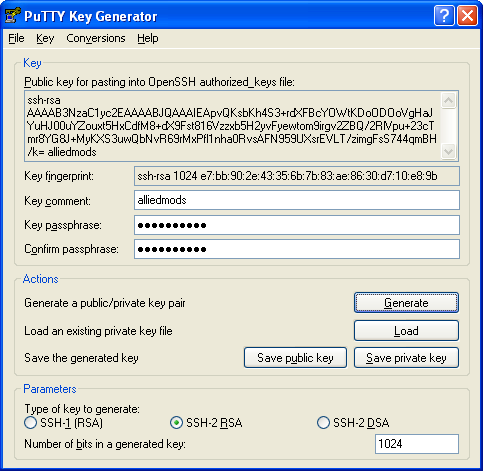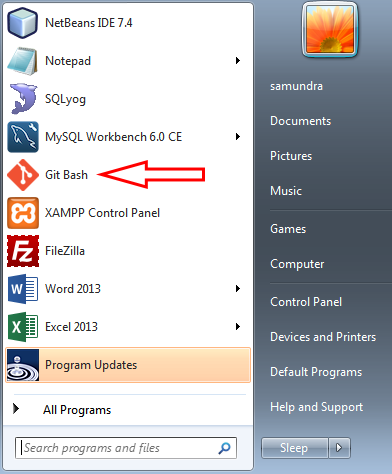Ssh Key Generate In Windows
May 16, 2018 How to Enable and Use Windows 10’s New Built-in SSH Commands Chris Hoffman @chrisbhoffman Updated May 16, 2018, 4:17pm EDT Microsoft announced it was bringing an integrated OpenSSH client to Windows in 2015. To Generate an SSH key in Windows 10, Open a new command prompt. Type ssh-keygen and hit the Enter key. The app will ask for the save location, offering C: users your user name.ssh idrsa by default. Next, you will be prompted to enter a passphrase. You can just hit the Enter key to skip it. To create a new key pair, select the type of key to generate from the bottom of the screen (using SSH-2 RSA with 2048 bit key size is good for most people; another good well-known alternative is ECDSA). Then click Generate, and start moving the mouse within the Window. Putty uses mouse movements to. /windows-7-upgrade-key-generator-free-download.html. Sep 26, 2019 Manually generating your SSH key in Windows PuTTY. Generating an SSH key. Importing your SSH key. Launching GitBash. Generating SSH keys. Uploading an SSH key.
Ssh Key Generate Windows Cmd
The PuTTYgen program is part of PuTTY, an open source networking client for the Windows platform.

- Download and install PuTTY or PuTTYgen.
To download PuTTY or PuTTYgen, go to http://www.putty.org/ and click the You can download PuTTY here/generate-private-key-from-ppk.html. link.
- Run the PuTTYgen program.
- Set the Type of key to generate option to SSH-2 RSA.
- In the Number of bits in a generated key box, enter 2048.
- Click Generate to generate a public/private key pair.
As the key is being generated, move the mouse around the blank area as directed.
- (Optional) Enter a passphrase for the private key in the Key passphrase box and reenter it in the Confirm passphrase box.
Note:
While a passphrase is not required, you should specify one as a security measure to protect the private key from unauthorized use. When you specify a passphrase, a user must enter the passphrase every time the private key is used.
- Click Save private key to save the private key to a file. To adhere to file-naming conventions, you should give the private key file an extension of
.ppk(PuTTY private key).Note:
The.ppkfile extension indicates that the private key is in PuTTY's proprietary format. You must use a key of this format when using PuTTY as your SSH client. It cannot be used with other SSH client tools. Refer to the PuTTY documentation to convert a private key in this format to a different format. - Select all of the characters in the Public key for pasting into OpenSSH authorized_keys file box.
Make sure you select all the characters, not just the ones you can see in the narrow window. If a scroll bar is next to the characters, you aren't seeing all the characters.
- Right-click somewhere in the selected text and select Copy from the menu.
- Open a text editor and paste the characters, just as you copied them. Start at the first character in the text editor, and do not insert any line breaks.
- Save the text file in the same folder where you saved the private key, using the
.pubextension to indicate that the file contains a public key. - If you or others are going to use an SSH client that requires the OpenSSH format for private keys (such as the
sshutility on Linux), export the private key:- On the Conversions menu, choose Export OpenSSH key.
- Save the private key in OpenSSH format in the same folder where you saved the private key in
.ppkformat, using an extension such as.opensshto indicate the file's content.

Ssh Keygen Windows
Generating an SSH Key on Windows - using PuTTY Gen: Download and install PuTTY. When the installation is complete, select and open the PuTTY Gen application. Set the Parameters by selecting the SSH-2 RSA radio button, and enter 2048 for the number of bits. Click Generate and the Key generation will begin. May 05, 2019 To generate an SSH key pair on Windows using PuTTYgen perform the following steps: Start the PuTTYgen tool, by double-clicking on its.exe file or going to the Windows Start menu → PuTTY (64-bit) → PuTTYgen. For “Type of key to generate” leave the default RSA. The “Number of bits in a generated key”, 2048 is sufficient for most people.